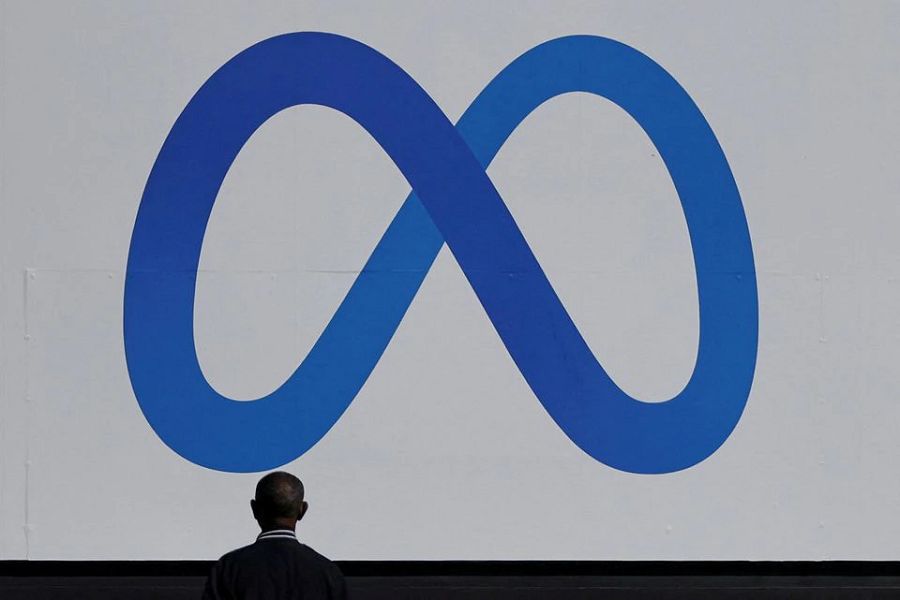Shares of Facebook owner Meta (FB.O) plummeted 26per cent on Thursday, the biggest single-day slide in market value for a US company, after the social media giant issued a dismal forecast, blaming Apple Inc's (AAPL.O) privacy changes and increased competition, Reuters reports.
The huge drop, erasing over $200 billion from Meta's market capitalization and around $29 billion from Chief Executive Officer Mark Zuckerberg's net worth, spilled over to the broader technology sector and dragged the Nasdaq Composite Index (.IXIC) lower. It was the biggest slide in market value for a US public company, according to a Reuters analysis of Refinitiv data.
It marked the company's worst one-day loss since its Wall Street debut in 2012.
"Meta CEO Mark Zuckerberg may be keen to coax the world into an alternate reality, but disappointing fourth-quarter results were quick to burst his metaverse bubble," said Laura Hoy, an equity analyst at Hargreaves Lansdown.
Big US tech-focused companies have come under mounting pressure in 2022 as investors expect policy tightening at the US Federal Reserve to erode the industry's rich valuations following years of ultra-low interest rates. The Nasdaq, which is dominated by tech and other growth stocks, fell more than 9per cent in January, its worst monthly drop since the coronavirus-induced market crash in March 2020.
"The downgrade in the earnings outlook by Meta and other companies took markets by surprise," said Kenneth Broux, a strategist at Societe Generale in London.
"The tech selloff spilled over to broader equity markets this morning and with the Fed preparing to raise interest rates, we could see more volatility going forward," he said.
After the market closed, social media platforms Pinterest (PINS.N)and Snap (SNAP.N)posted strong quarterly reports that sent their shares soaring 17per cent and 52per cent, respectively, more than reversing losses from earlier in the day. Their reports also sent Twitter (TWTR.N)up 8per cent, and helped Meta recover 1per cent.
Meta was a widely held stock by various investor groups, including hedge funds, according to recent data, leaving a number of funds potentially exposed by the wipe-out in its shares. Other institutional investors were also heavy owners.
It was also a popular stock for retail investors, who appeared to be enthusiastically buying the dip.
Some portfolio managers also saw a reason to buy. David Jeffress, portfolio manager at Laffer Tengler Investments, said on Thursday the firm is looking to add to its stake in Meta as the stock declines. Jeffress pointed to strong or increasing numbers Meta reported for user engagement, advertising and revenue per user.
"The results, taken in their entirety, were okay. It was the guidance that spooked people," Jeffress said. He called the trading declines "an overreaction."
The stock's drop was in addition a boon for investors betting on a decline in the company's shares. Short sellers in Meta were poised to increase their potential 2022 gains to more than $2 billion with Thursday's plunge, according to S3 Partners.
With Big Tech firms like Apple and Microsoft ballooning in valuations in the past few years, they have also become more susceptible to investor whiplash, often resulting in losses worth tens of billions of dollars in a single day of trade.
Apple shed nearly $180 billion on Sep. 3, 2020, while Microsoft lost $177 billion on March 16 in the same year.
Meta reported a decline in daily active users from the previous quarter for the first time as competition with rivals like TikTok, the video sharing platform owned by China's ByteDance, heats up.
The disappointment over Meta's earnings and the subsequent stock fall invoked memories of the bursting tech bubble in 2000.
Investors seem to be becoming highly selective after the sector's record-breaking run in recent months.
According to research firm Vanda, purchases from retail investors in late 2020 and early 2021 were focused on expensive tech, EVs and so-called "meme" stocks. In the past week purchases of large-cap tech have skyrocketed while speculative assets have seen very little demand.
Other social media stocks were also hit hard on Thursday, including Twitter (TWTR.N), Pinterest (PINS.N) and Spotify (SPOT.N). Spotify has been beset by a row over COVID-19 vaccination misinformation and also released disappointing results.


